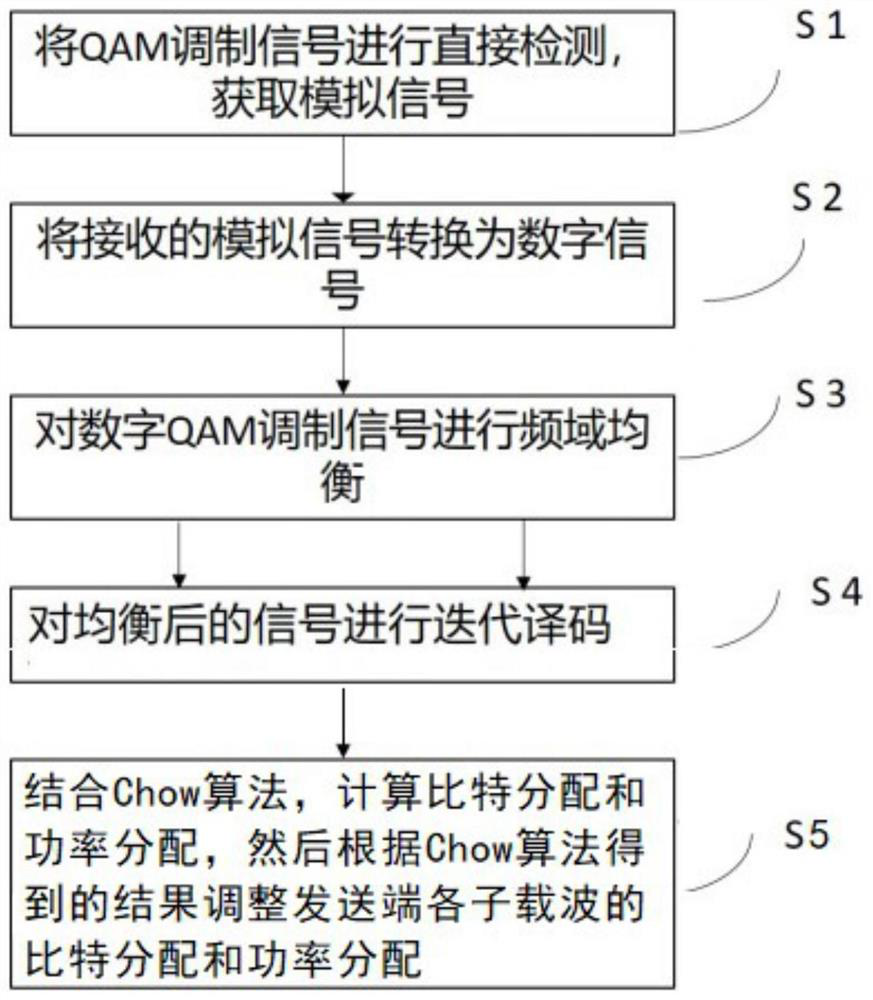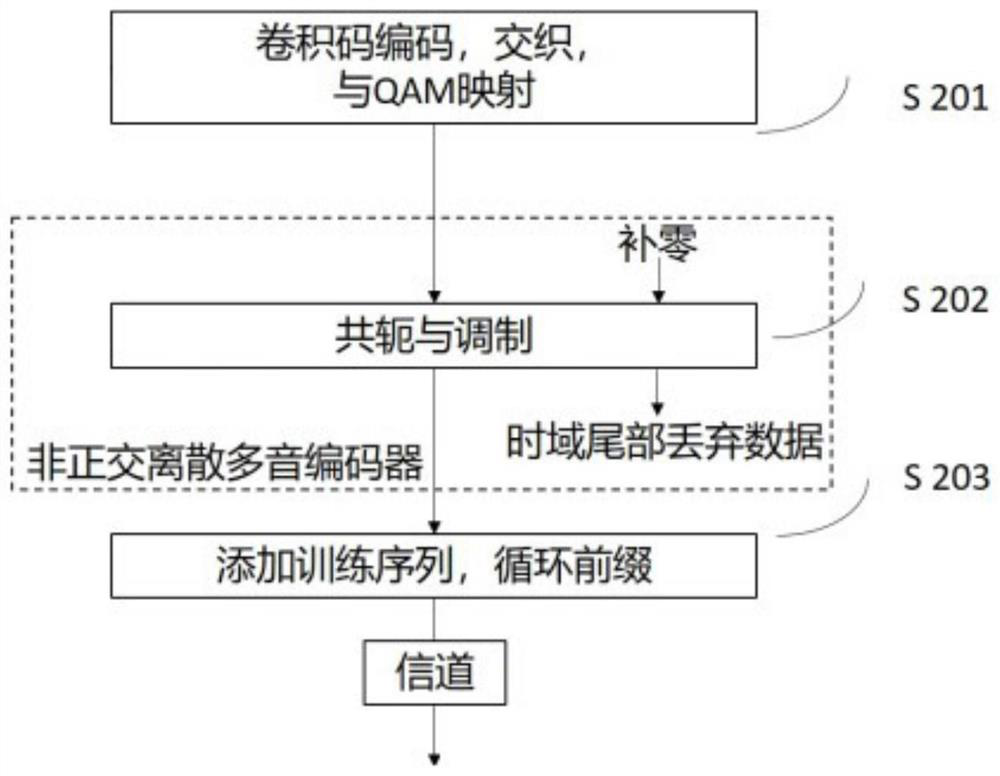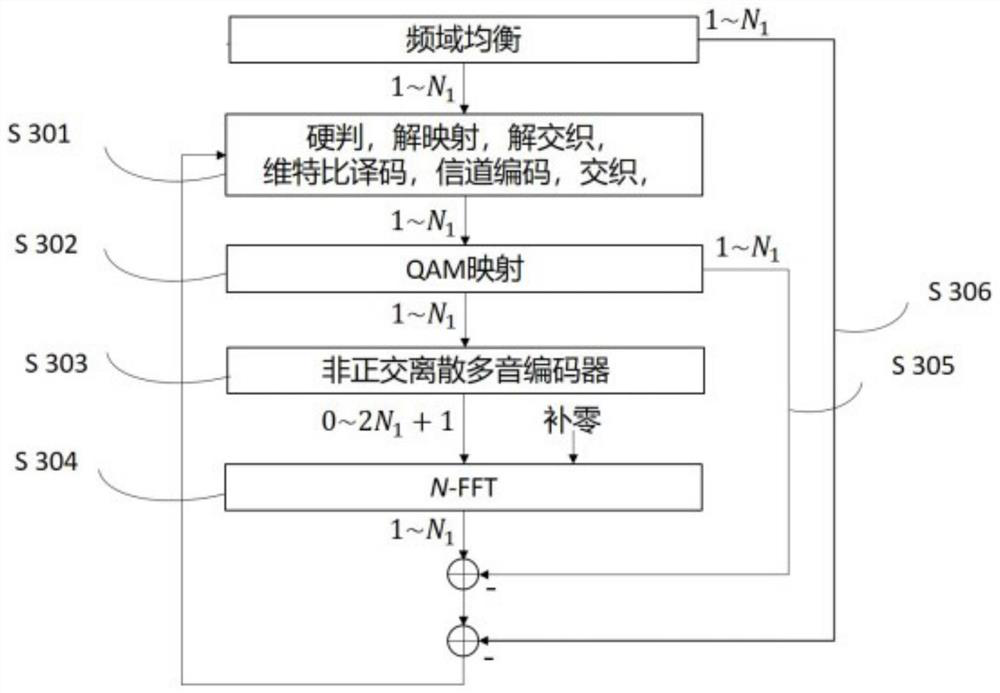Non-orthogonal signal processing method
A technology for non-orthogonal signals and processing methods, which is applied to the separation device of the transmission path, the sub-channel allocation of the transmission path, and the shaping network in the transmitter/receiver. It can solve the problems of limited sub-carriers and achieve equalization effect. Good, reduced complexity effect
- Summary
- Abstract
- Description
- Claims
- Application Information
AI Technical Summary
Problems solved by technology
Method used
Image
Examples
Embodiment Construction
[0048] The invention relates to a non-orthogonal signal processing method, which includes a sending end processing method (abbreviated as a sending method) and a receiving end processing method (abbreviated as a receiving method).
[0049] This processing method uses code-assisted iterative decoding to eliminate inter-carrier interference in a non-orthogonal discrete multi-tone system. The code here refers to channel coding with error correction capabilities. For example, the transmitting end uses convolutional code coding to increase redundancy, and the receiving end Adaptive Viterbi decoding is used to continuously correct errors using this channel coding, and then the bit error rate is updated through an iterative process and a cycle of coding and decoding. The channel coding with error correction ability makes iterative work, because if it is not for the error correction ability of coding and decoding, the result of each iteration will not change. The receiving end of the ...
PUM
 Login to View More
Login to View More Abstract
Description
Claims
Application Information
 Login to View More
Login to View More - R&D
- Intellectual Property
- Life Sciences
- Materials
- Tech Scout
- Unparalleled Data Quality
- Higher Quality Content
- 60% Fewer Hallucinations
Browse by: Latest US Patents, China's latest patents, Technical Efficacy Thesaurus, Application Domain, Technology Topic, Popular Technical Reports.
© 2025 PatSnap. All rights reserved.Legal|Privacy policy|Modern Slavery Act Transparency Statement|Sitemap|About US| Contact US: help@patsnap.com



